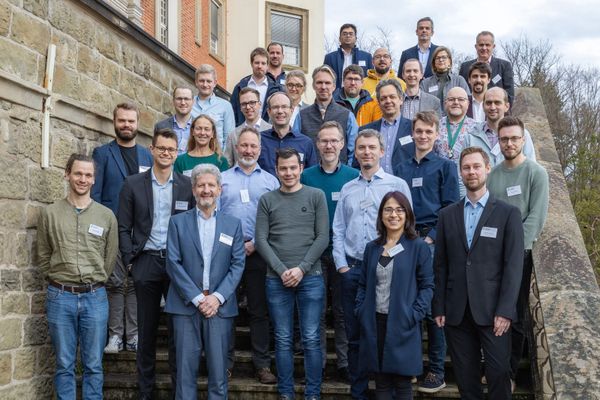First VMAP User Meeting demonstrates strong commitment to further develop and extend the VMAP standard

Transfer of material and design data along the virtual manufacturing chain is essential for data driven design processes. The VMAP standard - developed in the ITEA project VMAP (2017-2020) and continued via the legal association VMAP Standards Community (VMAP SC, 2022) - is an open and free standard for the transfer of material and engineering information between simulations within a Computer Aided Engineering (CAE) process chain. This provides simulation and design engineers with a fast solution to pass information from one calculation to another without needing to create one-off time-consuming interfaces.
In February 2024, the VMAP Standards Community organised its first VMAP User Meeting, bringing together various R&D&I projects which are currently using and extending the VMAP standard. There are many fields of engineering which are trying to incorporate VMAP standard, and the user meeting was a first get-together to know and understand the needs and requirements from the various domains.
The 34 participants - engineers, researchers, and developers, all closely working with the VMAP standard, VMAP SC and working group members & Public Authorities - shared their projects and ideas for the VMAP standard & VMAP Standards Community. Their contributions from various domains and multiple use cases showcased the current limitation and expected benefits from the standard, software solutions and code adaptations and other standardisation activities in the relevant domains.
The event saw presentations from research projects PIONEER, RESTORE, ALABAMA & METAFACTURING from the Horizon funding programme and the HyPerStripes project from the EUREKA Penta environment. For example, HyPerStripes uses technologies like roll-to-roll manufacturing and chip embedding to facilitate the efficient production of flexible electronic stripes that can be used to create e.g. smart cables and medical implants. During the interdisciplinary design, simulation, evaluation, production and testing process, there is a need for a file format that can store information about all the process steps involved. The VMAP format fills this gap by offering the possibility of saving datasets, geometries, simulation results and measurement series while providing the option of adding meta information to the data it contains.
Some presentations also focussed on the ongoing developments, including sensor data storage, full model storage, material data transfer in additive manufacturing processes. The presentation delivered by Olaf Bruch from Hagen Stiftung, showed a clear application from the blow moulding domain, where the stereography and thermography data need to be incorporated into the validation process along with the simulation data. This use case showcased the need for a standard format to store both test and simulation data, to carry-out such a validation process without any loss of information. Another presentation on handling of sensor data using knowledge graphs was presented by Morten Meyer from SICK AG. Here, the large amount of data collected via sensors needs to be organised to form a knowledge-based structure, and the VMAP standard offers a forma hierarchical structure with implicit semantics. Once the data is organised logically based on the semantics, the data can be queried more effectively and efficiently. Such varied use cases, with a similar demand for data storage, show the need for a standard. These use cases form the basis for the work being carried out within the VMAP SC Sensor Data Storage Working Group. The association members also discussed ideas for new R&D&I projects and extension of the standard in further application areas.
Join the VMAP Standards Community and contribute to the further development of the VMAP standard
This first VMAP User Meeting marked the beginning of many more events to come to further develop and extend the VMAP standard. The VMAP Standards Community is open to any institution from industry, software-domain, and academia as well as natural persons. If you think you can benefit from the VMAP Standard and would like to contribute to the development and extension of this standard, then we would be happy to hear from you. Please contact the chairperson, Klaus Wolf, at klaus.wolf@vmap-standard.org
More information: https://vmap-standard.org/
Related projects
VMAP
A new Interface Standard for Integrated Virtual Material Modelling in Manufacturing Industry


